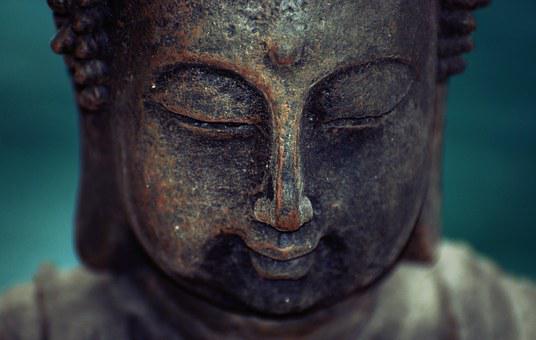MORELIA, Mexico (AP) — Whether covered by Leonard Cohen, Jeff Buckley or “Shrek,” the song “Hallelujah” has been heard by millions around the world, even though it was close to being forgotten. Documentarians Dayna Goldfine and Daniel Geller present their extraordinary story in the film “Hallelujah: Leonard Cohen, a Journey, a Song.”
Apparently they did not choose the song, the song chose them when a friend forced them to see Cohen on the long tour that the Canadian singer-songwriter gave towards the end of his life.
“A very dear friend bought us tickets, took us across the bridge from San Francisco to Oakland to see Leonard. For me, moment zero was when Leonard knelt down and began to sing that song,” Goldfine said in a recent conversation at the Morelia International Film Festival where the documentary received an ovation at its premiere in Mexico.
About five years after that concert, a friend asked you a question, had you ever thought of making a documentary about a song? At first they thought it would be pretty boring, but then they remembered Cohen in that powerful performance and the next day they went online to find out more about it.
They discovered that the song, included on their 1984 “Various Positions” album, had been rejected by their label even though it was already recorded. But then he’d had something of a resurrection in the voice of Cohen, Buckley, and in movies like “Shrek,” Marvel’s “Whatchmen” and multiple singing competitions. Not only that, there was a whole book dedicated to her written by Alan Light.
“He told us that other producers had approached him with the intention of adapting his book and there have been three reasons why they have given up. The first is that he was very sure that Leonard would not give an interview, the second that he was sure that Sony Music would not give them the rights to that song for a price that would make an independent film possible, and the third that they all felt that it would be too boring in the end,” recalled Goldfine.
Faced with this scenario, Goldfine and Geller decided not to be intimidated and began by seeking the approval of Cohen himself, which they got. But with the death of the singer-songwriter, at the age of 82, in November 2016, the possibility of interviewing him was completely ruled out.
“It made us reconceptualize the movie,” Goldfine noted. “We decided that, since we couldn’t interview him, we were going to make a film where we were going to travel with Leonard from the moment he told the world that he was a composer, as well as a poet.”
So the musician’s old files and interviews became his best tool, to the point that it feels like Cohen himself is speaking the entire movie. Over time they also managed to gain the trust of Robert B. Kory, who was Cohen’s manager at the time of his death and became the executor of his legacy. Kory gave them access to Cohen’s journals written during the seven-year process of creating “Hallelujah,” which has given rise to the myth that between 150 and 180 verses of the song exist. song.
“They’re amazing,” Geller said. “The five notebooks that we saw, which include the writing of ‘Hallelluyah’ and other things, we saw them and it was a privilege.”
To get around the second difficulty, obtaining the rights to the song to include it in the film, they turned to music supervisor Rachel Fox, who has worked on films like “Killing Them Softly” and “Blonde” (“Killing Them Softly”). Rubia”) to convince the executives of Sony Music Publishing.
“It took us 18 months of negotiations,” Geller said. “We decided we couldn’t risk starting filming without having that publishing deal.”
Again they overcame this difficulty, so they only had the vertigo of the possible reception that the public would have with a film dedicated to a song. They were convinced that they had much more on their hands.
“We thought that any subject, if it’s approached with enough creativity and love and determination and time, it took us three years to put this together, could be interesting,” Goldfine said.
“We knew we didn’t want to just make a movie about the songwriting and release, we knew that since the song addresses as much of Leonard’s own struggles as spirituality, moments of pain, connections, sex, everything, that would be the excuse. perfect for reviewing Leonard’s journey through life, his spiritual quest, and the song becomes a window into his life,” added Geller.
The film includes interviews with singer-songwriter Judy Collins, the first musician to sing on stage with Cohen, actress Nancy Bacal, who was a friend of the musician, and journalist Larry “Ratso” Sloman, who also contributed his own interviews with Cohen conducted the over many years. There are also appearances by John Cale, Bob Dylan, Jeff Buckley, KD Lang and many other musicians who have performed the song.
After passing through the Telluride and Venice festivals in 2021, the film is about to arrive at the Mar del Plata International Film Festival next weekend. It is expected to be released in theaters in Latin America and eventually they hope to take it to a streaming platform.
Just as it took Cohen seven years to write this song, it took Goldfine and Geller seven years to make the documentary.
“As independent filmmakers, even though we generally don’t have funds and it’s hard to make a movie, one thing we do have … is time,” Geller said. “Time allows things to happen on camera over the years.”
“Our sense of time changed…I deeply understood the concept of a broken hallelujah,” Goldfine added.

